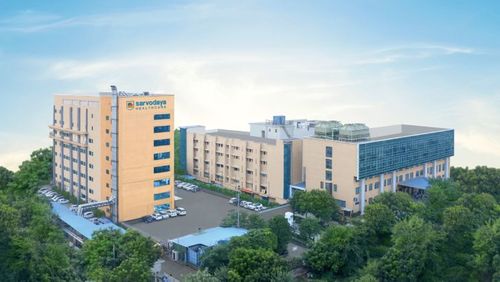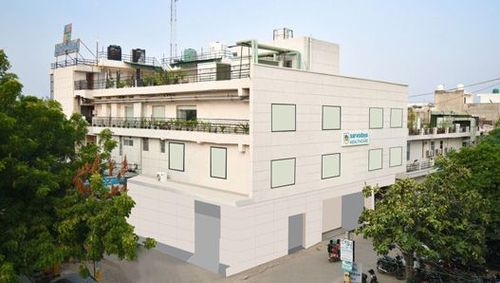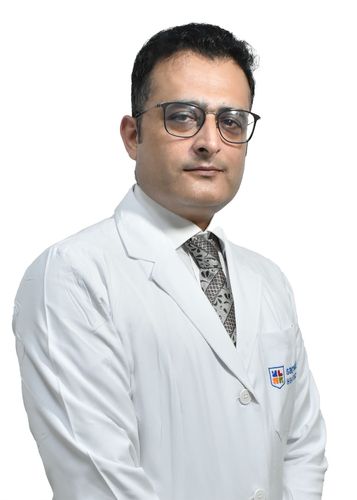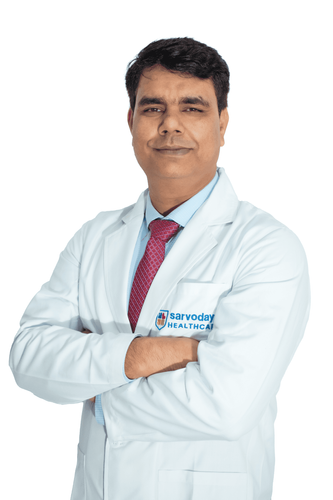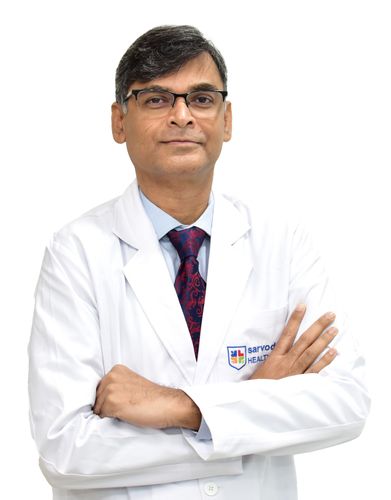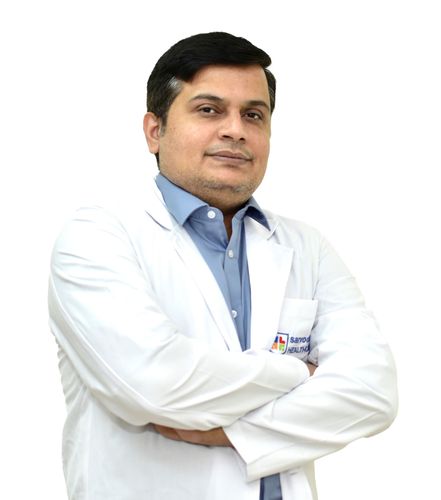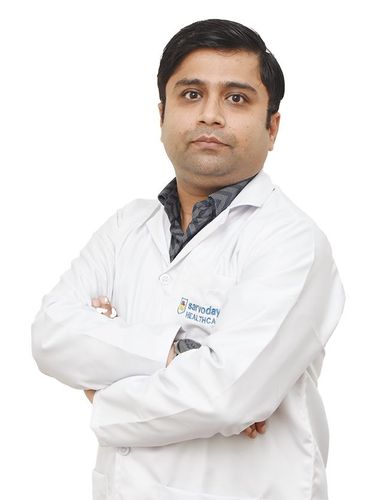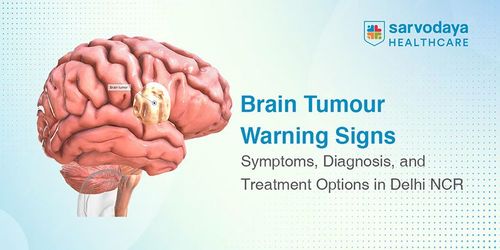Overview
Brain tumours are broadly classified by growth rate and recurrence risk: low‑grade (Grade 1–2) benign tumours that grow slowly, and high‑grade (Grade 3–4) malignant tumours that arise in the brain or spread from elsewhere and are more likely to return.
At Sarvodaya, a multidisciplinary programme combines advanced imaging, neuronavigation‑guided surgery, precision radiotherapy, chemotherapy, and rehabilitation to personalise care.
An experienced Neurologist in Faridabad leads accurate diagnosis with specialised pathology to define the exact tumour type, size, and location, so every plan balances tumour control with protection of vital brain function.
Symptoms of Brain Tumour
- Headaches that worsen over time or on waking
- Persistent nausea or vomiting
- New onset seizures
- Blurred or double vision
- Speech or memory difficulties
- Weakness or numbness on one side
- Balance and coordination problems
- Personality or behavioural changes
- Sudden severe headache with neurological deficits
Causes of Brain Tumours
- Genetic mutations affecting cell growth
- Family history of brain tumours
- Prolonged exposure to ionising radiation
- Weakened immune system conditions
- Inherited genetic disorders (e.g., Li-Fraumeni syndrome)
- Age-related risks (more common in older adults)
- Environmental or occupational exposures to carcinogens
- Metastasis from cancers in other body parts
Diagnosis of Brain Tumours
At Sarvodaya, a leading Neurosurgery Hospital in Faridabad, Delhi NCR, specialists use advanced imaging and personalised planning to detect brain tumours with precision and ensure safe treatment strategies.
- Advanced neuroimaging – MRI with contrast, functional MRI (fMRI), and Diffusion Tensor Imaging (DTI) provide detailed brain mapping, while CT scans are used in acute or emergency settings.
- Image-guided planning – Neuronavigation and intra-operative monitoring help map critical brain pathways, improving surgical accuracy and safety.
- Tissue confirmation – Stereotactic or open biopsy, along with specialised histopathology and molecular profiling, confirms tumour type and guides targeted therapy.
Treatment of Brain Tumours
A team of experts from neurosurgery, neuro-oncology, radiation oncology, neuroradiology, neuropathology, rehabilitation, and intensive care work together to design the most effective treatment plan.
- Surgery: Often the first-line treatment when safe, an operation for a brain tumour involves microsurgical removal of the tumour using advanced techniques like neuronavigation, intraoperative neuro-monitoring, and skull-base or endoscopic approaches. The aim is maximum safe removal while preserving brain function.
- Radiation therapy: Options such as Intensity-Modulated Radiation Therapy (IMRT), Stereotactic Radiosurgery (SRS), and Stereotactic Radiotherapy (SRT) are used for residual, recurrent, or inoperable tumours. These deliver precise, high-energy rays to destroy tumour cells while sparing healthy tissue.
- Medical therapy: Depending on the tumour type, chemotherapy, targeted therapies, and anti-angiogenic agents may be used. Supportive medicines such as steroids and anti-epileptics help manage swelling, seizures, and related symptoms.
- Rehabilitation and survivorship:Post-treatment care includes neuro-rehabilitation, speech, physiotherapy, and occupational therapy, along with cognitive support and counselling to improve quality of life and long-term recovery.
Prevention & Lifestyle Modification
At Sarvodaya Hospital, we believe care goes beyond treatment. While not all brain tumours can be prevented, certain lifestyle modifications and preventive measures may help reduce risk and support overall brain health. As a leading Neurology Hospital in Delhi NCR, we also guide patients on healthy habits and regular screenings to ensure timely detection and better outcomes.- Avoid exposure to harmful radiation and toxins: Limit unnecessary exposure to radiation and industrial chemicals by following workplace safety measures and using protective equipment.
- Maintain a healthy lifestyle: A balanced diet rich in fruits, vegetables, and whole grains, along with regular physical activity, supports brain and overall body health.
- Quit smoking and limit alcohol consumption: These habits can contribute to several cancers and impact neurological health. Quitting smoking and moderating alcohol intake can lower risks.
- Protect against infections: Vaccinations and timely treatment of infections, particularly those affecting the nervous system, can help prevent complications linked to brain health.
- Routine health check-ups: Regular neurological evaluations, especially for individuals with a family history of brain tumours or genetic conditions, aid in early detection and management.
- Mental wellness and stress management: Practices such as meditation, yoga, and mindfulness support cognitive function and overall well-being.
Pre and Post Brain Tumour Surgery Guidance
Pre-Surgery Preparation
- Get a complete medical evaluation to optimise overall health before surgery.
- Manage seizures, brain swelling, or other symptoms with prescribed medications.
- Work with your care team to review imaging, surgical goals, and expected outcomes.
- Plan for ICU stay and recovery, including arranging caregiver or family support.
- Discuss ongoing medications and lifestyle habits with your neurosurgeon.
- Seek counselling or support groups to address emotional readiness before the procedure.
Post-Surgery Care
- Follow all rehabilitation exercises recommended by your doctor or physiotherapist.
- Attend regular follow-up appointments to monitor healing and recovery.
- Maintain a brain-healthy diet with sufficient protein, vitamins, and hydration.
- Manage pain, fatigue, and mood changes with medical guidance.
- Stay consistent with seizure medications or other prescribed treatments.
- Gradually return to daily activities under your neurosurgeon’s advice.


